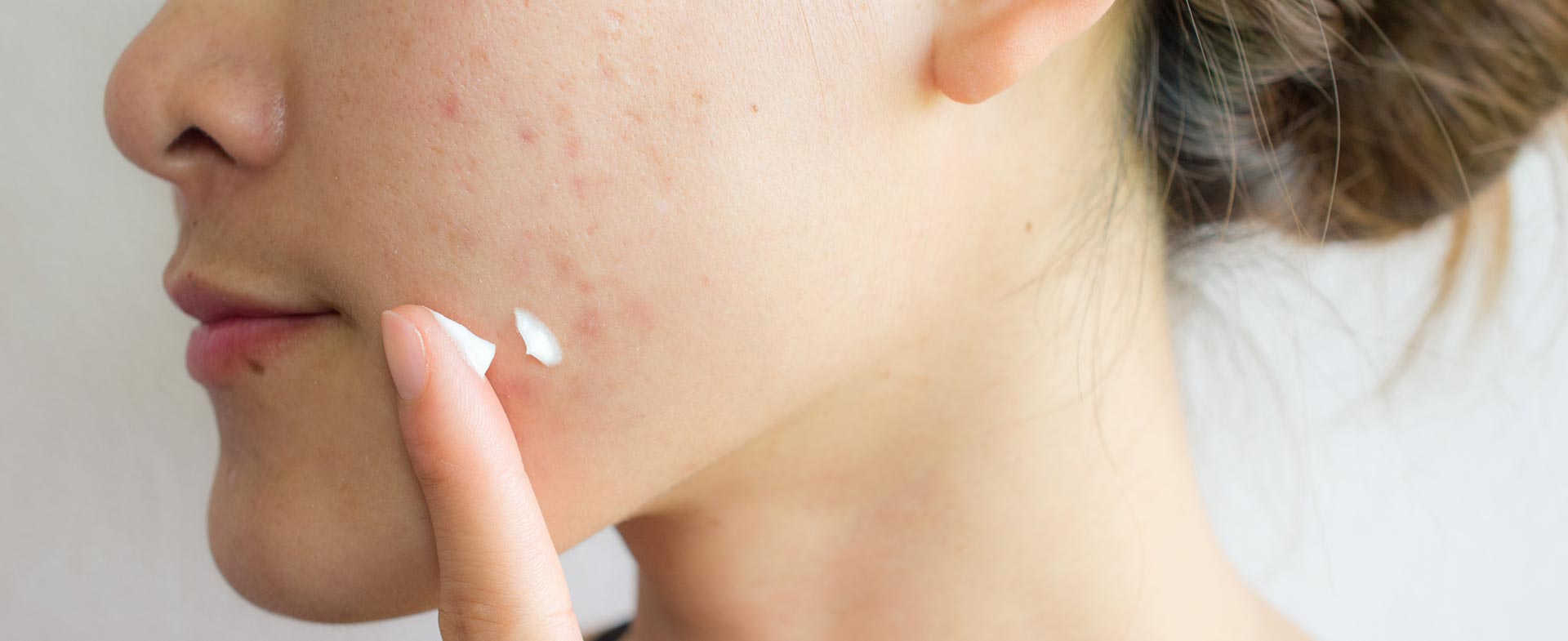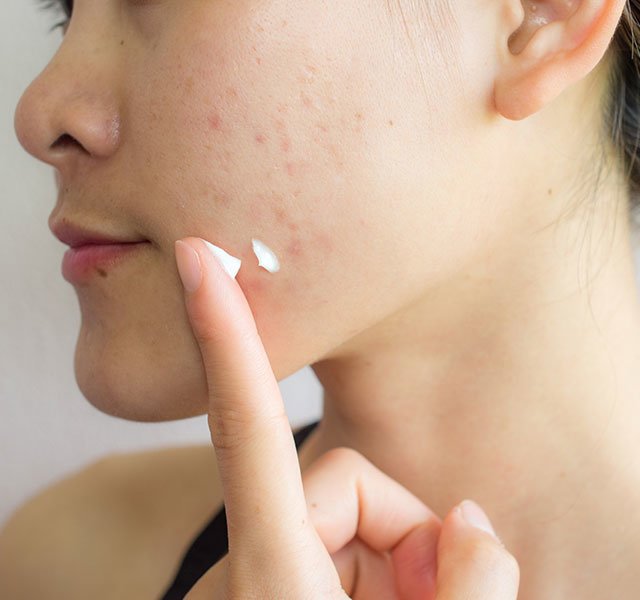While acne is most commonly linked to the teenage years, the reality is, it can happen at any age.
"It's not like you turn 20 and boom, your acne is gone," says Anna Axelson, M.D., a dermatologist at Henry Ford Health. "In fact, acne happens for a variety of reasons, including genetics, lifestyle factors and fluctuating hormone levels."
What Is Acne, Really?
Acne is the most common skin condition in the United States, affecting more than 50 million Americans each year, but most of us don't really understand what it is.
The term “acne” applies to everything from run-of-the-mill whiteheads and blackheads (comedones) to deeper papules and painful cysts.
"Red, raised lesions occur when too much oil and dead skin cells clog pores, which triggers the body's natural inflammatory response," Dr. Axelson says. "Hormonal influences also play a big role, which is one reason women may notice acne around the time of their periods, during pregnancy and around the time of menopause."
Do's And Don'ts For Treating Acne-Prone Skin
You have to get ahead of acne to treat it effectively — and that starts with a skin care regimen designed to keep excess oil and bacteria at bay. Here are Dr. Axelson's do's and don'ts for treating acne-prone skin.
Do keep it clean
Wash your skin twice a day (no more, no less). You may want to choose a wash with active ingredients. Gentle cleansers without active ingredients are also helpful as well to decrease any irritation that may arise with acne treatments. To slough away dead skin cells, consider using an exfoliating cleanser once or twice each week.
Do look for active ingredients
The active ingredients you choose depend on which type of acne you have and your skin type. In general, doctors recommend cleansers and acne treatments that contain one of four active ingredients:
- Benzoyl peroxide
- Salicylic acid
- Adapalene
- Retinol
Each of these ingredients dries the skin and helps prevent acne formation. Dr. Axelson recommends a benzoyl peroxide cleanser in the morning and an adapalene or retinol product at night.
Do wear SPF
The best thing you can do for your skin — whether you have acne or not — is to wear oil-free, broad-spectrum sunscreen daily. Wearing sunscreen is especially important if you're treating acne because ingredients like retinol, benzoyl peroxide and salicylic acid make your skin more sensitive to the sun. Sunscreen also helps decrease the redness or dark spots that may remain after acne has healed.
Do moisturize
It may seem counterintuitive to moisturize skin that's already oily, but acne treatments are drying and it's important to keep skin hydrated and support the skin's natural barrier. Just be sure to choose a moisturizer that's labeled noncomedogenic and oil-free, which means it won’t clog pores or lead to acne formation.
Don't over-exfoliate
While it's tempting to try to scrub acne away, over-exfoliating can strip the skin of natural oils, worsen irritation and make breakouts worse.
Don't expect to see results immediately
You won't see noticeable changes from a new product for at least six to eight weeks. Don’t give up too soon!
Don't wear heavy makeup
Makeup can clog pores and lead to acne, especially if it's oil-based and heavy. These products also make it difficult for your skin to breathe.
Don't pop your pimples
Picking at your pimples or popping them not only makes a small pimple look much worse, but it can also extend healing time and increase the risk of scarring.
Taking Charge Of Acne
An effective skin care regimen can reduce acne symptoms and prevent breakouts from happening. But unfortunately, there's no quick fix for acne. It can take up to three months before you'll see noticeable changes in your skin from a new product. The trick is to commit to a daily anti-acne regimen, not just when you sense a breakout forming.
If you have hard-to-treat acne and over-the-counter products aren't doing the trick, see a dermatologist. "It's important to be proactive with acne treatment so you can prevent the type of acne that can lead to scarring," Dr. Axelson says.
Work with your dermatologist to design a consistent regimen that your skin can tolerate, which may include in-office options such as peels, laser treatments, microneedling and prescription medications. A routine of dermatologist-approved treatments should put you on the path to clearer skin.
To find a doctor or dermatologist at Henry Ford, visit henryford.com or call 1-800-436-7936.
Dr. Anna Axelson is a board-certified dermatologist who sees patients at Henry Ford Medical Centers in Detroit and Grosse Pointe Farms.



